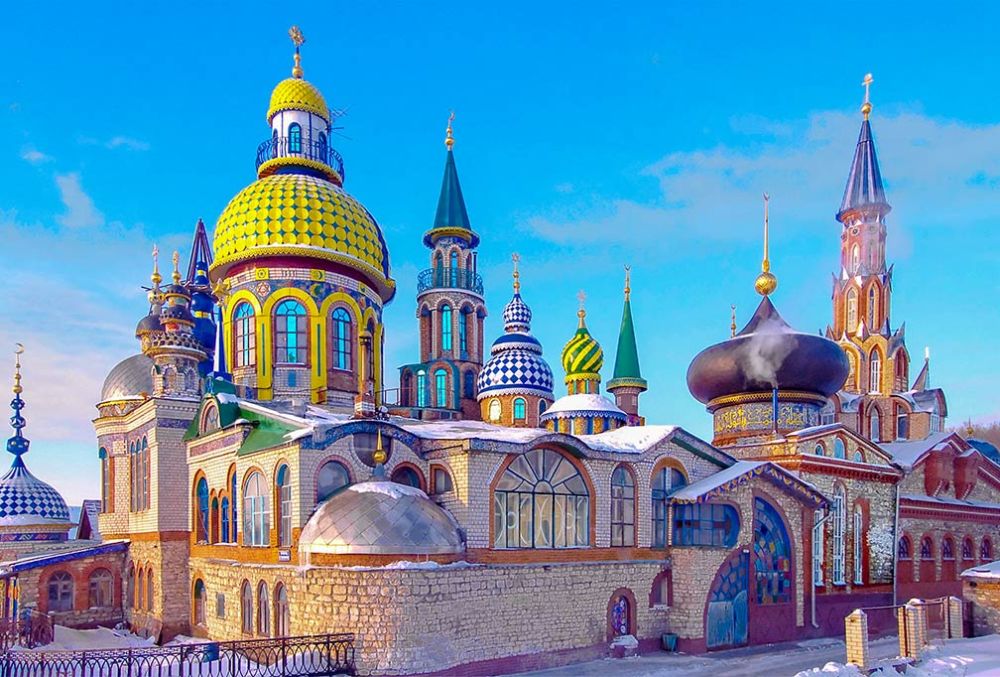

The city of Kazan, located in the Republic of Tatarstan, Russia, boasts a rich and multifaceted history that has captivated travelers for centuries. Founded more than a thousand years ago, Kazan has served as a melting pot of cultures and religions, including Tatar, Russian, and other ethnicities. With its origins tracing back to the ancient Volga Bulgars, the city has been a vital crossroads of trade and a political center in the region.
Tourism in Kazan began to develop significantly with the establishment of the Kazan Khanate in the 15th century. Its strategic location along the Volga River made it an attractive destination for traders and travelers. The conquest of Kazan by Ivan the Terrible in 1552 and the subsequent annexation of the territory into the Russian Empire opened new avenues for cultural exchanges and pilgrimages to its numerous religious landmarks.
Throughout the Tsarist and Soviet eras, Kazan continued to attract visitors due to its educational institutions, like Kazan Federal University (established in 1804), and vibrant cultural scene. However, it wasn't until the collapse of the Soviet Union that Kazan truly began to emerge as a notable destination for international tourists. The 1990s saw significant investments in the city's infrastructure, preparing it to become a more accessible and welcoming place for visitors. The inscription of the Kazan Kremlin, a UNESCO World Heritage site, in 2000, marked an important milestone in establishing Kazan's status on the global stage.
The real turning point for tourism in Kazan came with the city's 1000th anniversary celebrations in 2005. This massive event was accompanied by major restorations and improvements within the city. The following years saw Kazan host important international events, such as the Universiade in 2013 and matches during the FIFA World Cup in 2018, which further solidified its reputation as a sporting and cultural hub.
In recent years, Kazan has seen a surge in visitor numbers, attracted by its blend of historical architecture, sports events, and modern attractions. The city's ability to balance its rich heritage with progressive developments has made it a unique tourist destination. Eco-tourism is becoming increasingly popular, with visitors looking to explore the natural beauty of the Volga region. Additionally, gastronomic tourism is on the rise, with Tatar cuisine being particularly sought after for its unique flavors and traditional dishes such as chak-chak and echpochmak.
Interactive and experiential travel experiences have become more prevalent, with augmented and virtual reality technologies allowing guests to immerse themselves in the city's past. Cultural festivals and events throughout the year also offer visitors a chance to experience local traditions firsthand.
As Kazan continues to grow its tourism sector, efforts are being made to enhance the visitor experience further, focusing on sustainable practices and improving accessibility for international tourists. With its combination of history, culture, and innovation, Kazan remains a jewel in Russia's tourism crown, promising rich experiences for travelers from around the globe.